Description
ABSTRACT
An Examination of Female Employee Rights under Nigerian Law
David Eyongndi*
Female employees are considered as sui generis employees because they fall under the vulnerable group. Aside the general employment rights, there are certain peculiar employment rights which international instruments have bestowed on female workers which are recognised under Nigerian labour law. However, does Nigerian law compare favourably with international best practices? This paper while highlighting general employee rights; examines female employee rights under the Nigerian labour law and further examines the meaning of the concept, “right”. The paper also evaluates the legal framework on employee rights in Nigeria. The paper found that the vulnerability and peculiarities of female employees precipitated by their multiple roles, is not well recognised and adequately protected under Nigerian labour law when compared with international instruments. The paper recommends amendment of the current legal regime to expand the scope of female employee rights in Nigeria in accordance with modern economic realities and international best practices. Also, the paper further recommends that the government should improve its commitment in enforcing legislation that guarantee female employee rights.
Keywords: Female Employee, Rights, Nigerian Labour Law, Employer.
INTRODUCTION
In Nigeria and in other parts of the world, under the contract of employment, the employee is entitled to certain rights and privileges.1 However, certain categories of employee due to their peculiar vicissitudes fall into an employment class which can be described as sui generis. These classes of employees are children and female employees.2 The female employee in particular stands out due to her peculiarities.3 Aside the general employment rights, there are certain peculiar employment rights that international instruments have bestowed on women, aimed at ensuring equality of opportunity and treatment for men and women workers.
The instruments include the Protocol to the African Charter on Human and People’s Rights on the Right of Women in Africa, 2005, Convention on the Elimination of all forms of Discrimination Against Women (CEDAW), the Beijing Declaration and Platform for Action, 1995, ILO Convention 183, Maternity Protection Convention (Revised) 2000,4 ILO Night Work (Women) Convention (Revised) No. 41, 1934, International Labour Organization’s Declaration on Equality of Opportunity and Treatment for Women Workers (1975),5 the International Labour Organization’s
* LL.B (Hons) (Unical), BL, LL.M (Ibadan). Lecturer, Department of Private and Commercial Law, Bowen University, Iwo, Osun State.
- Agomo, C.K., Nigerian Employement and Labour Relations Law and Practice (Concept Publications Limited, Lagos 2011) 297. See also Hepple, B., ‘Restructuring Employment Rights’ (Public Lecture Delivered on 28 November 1985 at King’s College, London). accessed 18 April 2017.
- Agomo, ibid 298.
- Anaeme, F.O. ‘Reducing Gender Discrimination and Violence against Women through Library and Information Service’ P, 1, accessed 14 October 2017. Daudu B., ‘Gender Discrimination in Employment: An Appraisal’ (2007) 1(2) Nigerian Journal of Labour and Industrial Law 45.
- The first convention on maternity was Convention No. 3 Maternity Protection, 1919 and followed by Maternity Protection Convention (Revised) No. 103, 1952.
- International Labour Conference, ‘Equality of Opportunities and Treatment of Women Workers’ (60th session, 1975 )

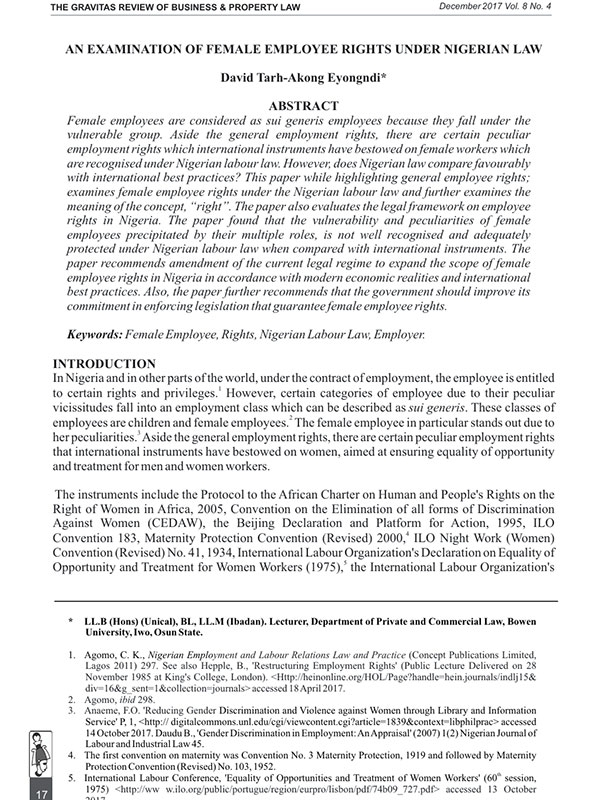
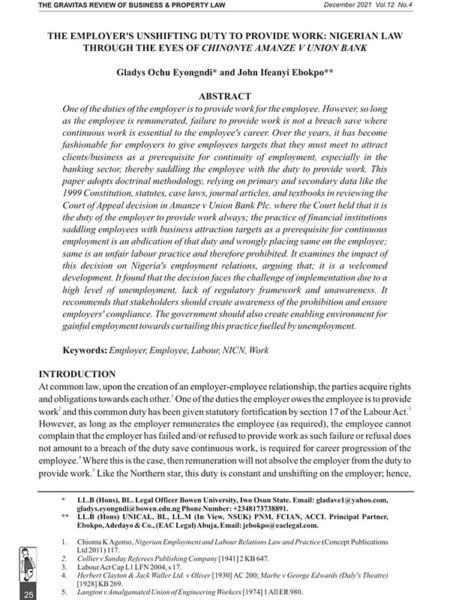
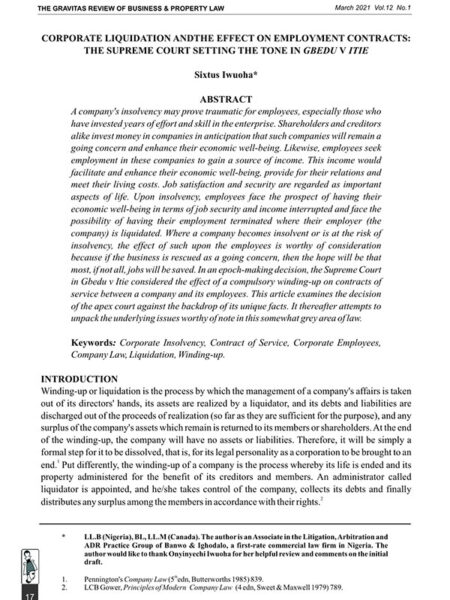
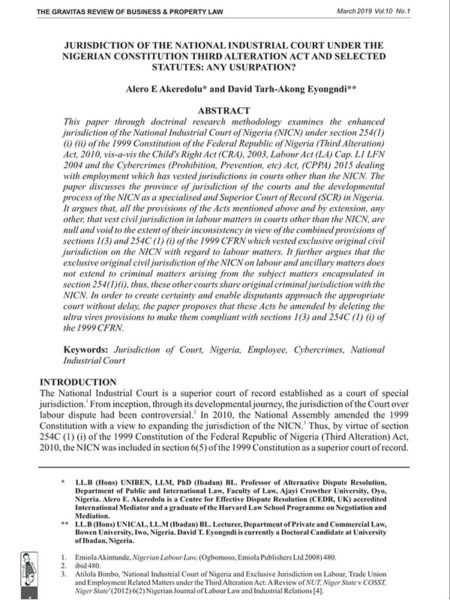
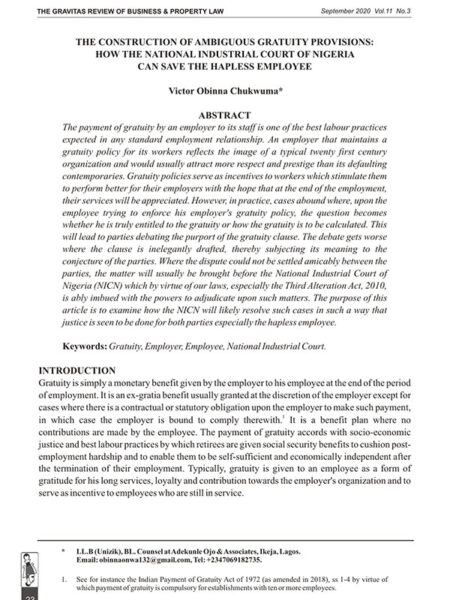


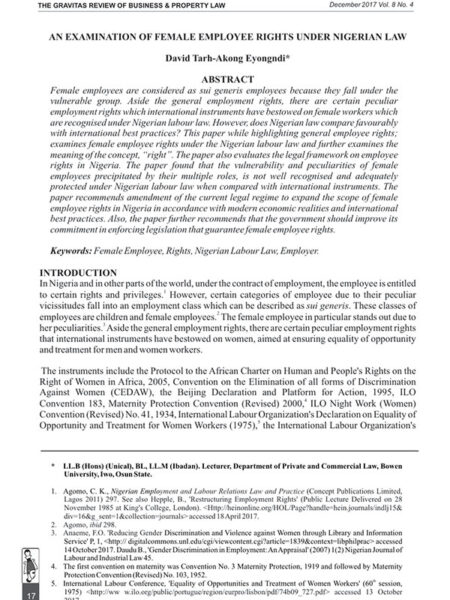
Reviews
There are no reviews yet.